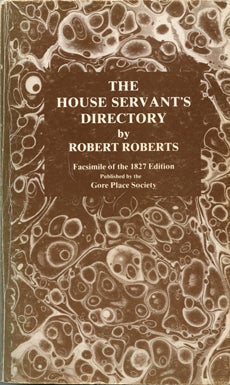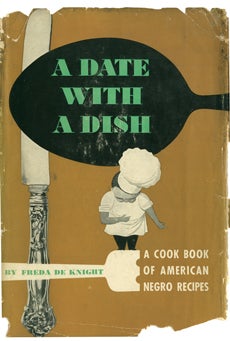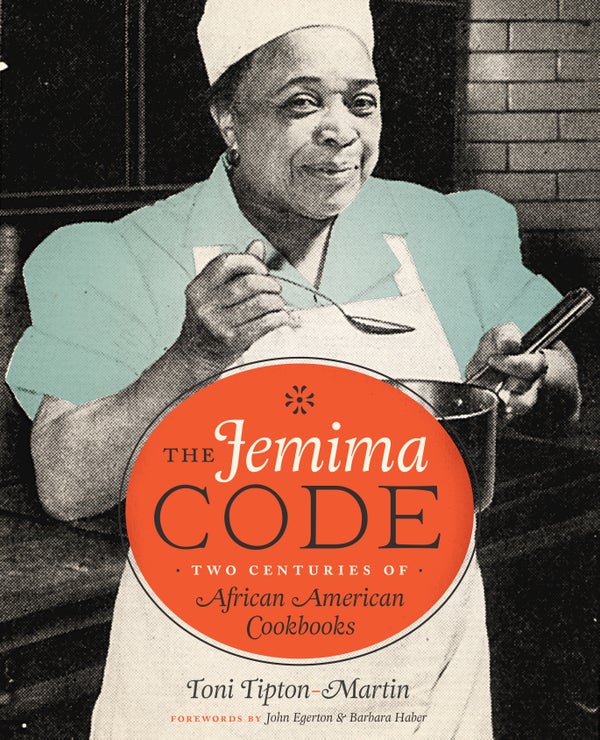This article was published in Scientific American’s former blog network and reflects the views of the author, not necessarily those of Scientific American
Instructions for how to make a celery infused frozen tomato salad may sound more modern and molecular than mammy but it's actually one of the recipes found in Mammy's Cook Book, the book features only a sprinkling of dishes typically associated with African American cuisine. It includes recipes for ice cream and other foods that require an advanced knowledge of technique and skill.
Mammy's Cook Book is just one of the cookbooks featured in food journalist Toni Tipton-Martin’s recently published book, The Jemima Code: Two Centuries of African American Cookbooks. It consists of over 150 entries that document Tipton-Martin’s personal collection of 300 cookbooks that challenge the mammy stereotypes commonly associated with African American cuisine. As she explains, this dominant narrative--The Jemima Code--renders the accomplishments of black cooks as insignificant. She writes:
“The encoded message assumes that black chefs, cooks, and cookbook authors--by virtue of their race and gender--are simply born with good kitchen instincts; diminishes knowledge, skills and abilities involved in their work, and portrays them as passive and ignorant laborer incapable of culinary artistry.”
On supporting science journalism
If you're enjoying this article, consider supporting our award-winning journalism by subscribing. By purchasing a subscription you are helping to ensure the future of impactful stories about the discoveries and ideas shaping our world today.
All of the cookbooks in The Jemima Code are from Tipton-Martin’s personal collection that include over 300 volumes and span nearly 200 years. Although she initially saw the story as primarily about a few recipes, as Tipton-Martin compiled more information, it transitioned into a social justice project and continued to evolve into an opportunity to see the impact made by individuals and how they contributed to society.
Cookbooks offer a unique insight into history, says Tipton-Martin. “They are a way for women and people who haven’t had a lot of opportunities for creative expressions to use cookbooks as a way to get published, to tell their story, to record information about their community, to really define who they are and what matters to them and for other people.”
The celebratory aspects of African American history and cuisine, which are often under-represented, are emphasized throughout the book. Accomplishments, innovations, challenges of solely relying on locally sourced ingredients, and adeptness of using substitutions are more accurately reflected when they are unencumbered from the Jemima Code.

The House Servant's Directory by Robert Roberts. Facsimile edition, Waltham, Massachusetts; Gore Place Society, 1977
Education is a theme that is explored in various forms throughout the book, beginning with the first cookbook featured. Published in 1827, Robert Roberts’s The House Servant's Directory is more of a household manager’s book than a traditional cookbook, but one of the things Tipton-Martin appreciates about it is how it dispels the perception of Negro magic by showing how skills were taught rather than the product of innate ability.

A Date with a Dish: A Cook Book of American Negro Recipes by Freda De Knight. New York: Hermitage Press, 1948
By the beginning of the twentieth century, cookbook authors were also conveying the importance of education by establishing cooking schools and working within the domestic science curricula at historically black colleges. The theme of education continues on into the 1940s--Freda DeKnight, the food editor for Ebony magazine, approached education in a multi-dimensional way by gathering and sharing recipes from across the United States that highlighted diversity of cuisine, uplifted and empowered the African American community.
Tipton-Martin is currently working on a sequel volume, which has a working title of Jubilee, which will feature recipes from the cookbooks included in The Jemima Code. She also continues to work with her foundation, The SANDE Youth Project, a nonprofit organization which promotes race tolerance, wellness, and economic opportunity.
Through the work of her foundation and the authors included in her book, Tipton-Martin says, “My hope is that we can develop appreciation for one another as individuals. When you share a meal with someone and learn the similarities between their cooking style and yours, it makes it a little bit harder to be racist and hold bigoted opinions.”
